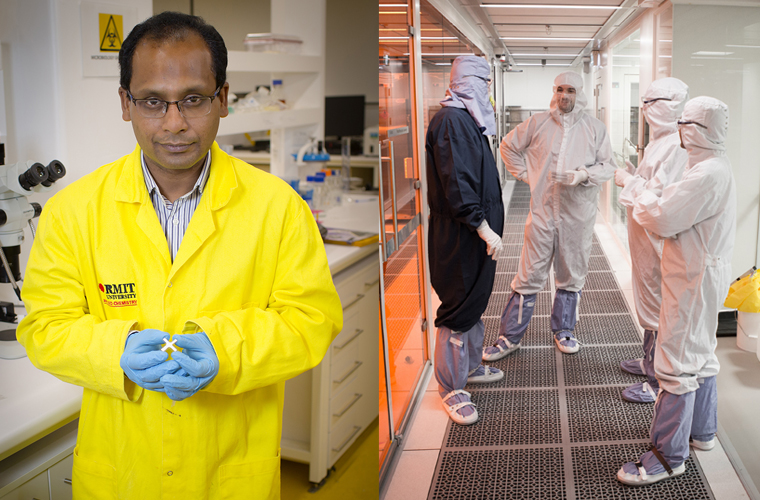News
New technology may help predict if children are at risk of type 1 diabetes
An early detection technology being developed for type 1 diabetes could herald an exciting breakthrough in the future.
 RMIT researcher Professor Vipul Bansal says a new technology might help prevent diabetes in children.
RMIT researcher Professor Vipul Bansal says a new technology might help prevent diabetes in children.
Clinicians might be able to predict whether children, including newborns, could have type 1 diabetes thanks to a new detection kit being developed by the Royal Melbourne Institute of Technology (RMIT) researchers.
There is currently no early test for type 1 diabetes, which affects about 542,000 children around the world.
Professor Vipul Bansal, Director of the Ian Potter NanoBioSensing Facility at RMIT, told newsGP by the time someone is diagnosed with the disease, 70% of the cells that produce insulin in the body are already dead or not functional.
‘The hope is that if it can be detected in a newborn, for example, the damage is much less, and maybe only 5–10% of cells are damaged,’ Professor Bansal said.
‘If you can detect it in the early stage, you can potentially treat it. In the near future, at least, you can start applying intervention strategies very early in the stage and you can possibly even delay the onset.’

Professor Vipul Bansal and researchers in the lab.
The technology being developed by RMIT scientists and engineers uses a microchip and sensor to detect markers in the blood that can identify the early loss of beta cells.
Beta cells are found in the pancreas and are the body’s only way of making insulin, the sugar-regulating hormone that people with type 1 diabetes cannot produce.
Researchers at the University of Sydney, led by Associate Professor Anand Hardikar, have previously discovered about 20 biomarkers in the blood that can accurately predict the health of beta cells.
Their collaboration with RMIT builds on that breakthrough, with the aim of developing, in three years, a point-of-care device to test for these biomarkers and produce results within minutes.
‘At the moment, we know someone has diabetes if the blood sugar level is very high,’ Professor Bansal said.
‘It’s like the end-effect we are detecting currently, but we want to have a paradigm shift where we look at the health of the cells that are not doing their job or dying. The detection kit we’re developing is cost-effective and simple to use, requiring no specialist technical knowledge or expensive analysis.
‘Being able to detect this disease well before it has a chance to progress would be life-changing for the 2400 Australians diagnosed with type 1 diabetes each year.’
Led by Professor Bansal and cell biologist Dr Ravi Shukla, the scientists have already developed a sensor coated with special nanoparticles. The sensor can reliably detect the presence of select biomarkers, changing colour if a particular molecule is present in the blood.
The next stage, researchers say, is working with the engineers at RMIT’s Micro Nano Research Facility to expand the sensor’s capabilities and miniaturise it onto a microfluidic chip about the size of a postage stamp.
Micro Nano Research Facility Director, Professor Arnan Mitchell, said the final result will be a simple and reliable tool for health professionals.
‘The prototype we’re building will be able to analyse just a pin-prick of blood from a patient and provide a score that indicates the risk of type 1 diabetes,’ Professor Mitchell said.
Dr Gary Deed, Chair of the RACGP’s Diabetes Specific Interests network, told newsGP the research represents an exciting early development.
‘It does require further development for clinical implementation,’ Dr Deed said.
‘It is lovely to see Australian researchers advancing the cutting edge of technology in severe chronic illness, and ultimately trying to improve the lives of people with diseases such as type 1 diabetes.
‘Technology like this is something that any parent living with children affected by type 1 diabetes looks forward to and embraces.’
1 diabetes medical technology 'Type
newsGP weekly poll
What is your chief concern with role substitution?